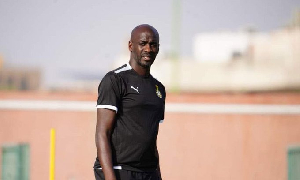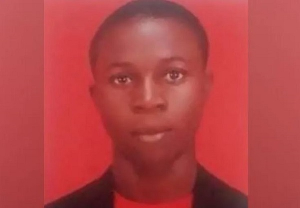The government has spent GH¢2bn so far on its flagship Free Senior High School (SHS) policy, the Vice President, Dr. Mahamudu Bawumia, has revealed.
Speaking at the National Council meeting of the governing New Patriotic Party over the weekend in Accra, the Vice President said the GH¢2bn spent on the Free SHS policy is part of more than GH¢20bn the government has spent on key polices since it assumed office in 2017.
President Akufo-Addo, during the Free SHS policy launch in September 2017, said his government would invest revenues from oil into one of the most ambitious social programmes in the country’s history.
According to him, Free SHS is ensuring that the country’s oil revenues are being equitably distributed to the people and not ending up in the pockets of a few.
The first year of implementation of the policy saw the government earmark about GH¢400m to take care of over 300,000 students who were placed in Senior High Schools (SHS) across the country. With the full roll-out of the policy completed, total enrolment in SHS currently stands at 1.2m students, the highest ever in the country’s history.
It is estimated that government spends about GH¢2,312 on each SHS student per year.
In his 2020 budget presentation to Parliament, Finance Minister Ken Ofori-Atta disclosed that the policy has saved parents a total amount of GH¢1.8bn.
Policy to swell demand for tertiary admissions
Education watchers have said demand for tertiary school admissions is expected to be massive this year, as the country awaits the maiden graduation of over 360,000 Free SHS students who will be applying for entry into the various tertiary institutions.
The reality is that this single batch of Free SHS beneficiaries are more in number than the entire student population of the 138 tertiary institutions in the country at the moment.
The 138 tertiary institutions, including colleges of education and nursing training, have an entire student population of 320,746 covering all batches, and they have the capacity to admit about 100,000 students yearly as a result of limited infrastructure.
This means that in 2020 these institutions will not even be able to admit half of the 360,000 students who are expected to apply for admission into the various tertiary institutions.
Of course, government has said its aim is to ensure that secondary school education becomes the least education any Ghanaian would have—so a counter-argument would be that it is not all the 360,000 SHS graduates that would be expected to have tertiary education.
But analysts have argued that secondary school education is not enough to produce the requisite human resources for the accelerated industrialisation government seeks.
The government, according to analysts, must, therefore, embark on rigorous infrastructural expansion in the various tertiary institutions to enable them admit the historic number that will be searching for higher education in the near future.
Click to view details



Business News of Monday, 29 June 2020
Source: thebusiness24online.net

















